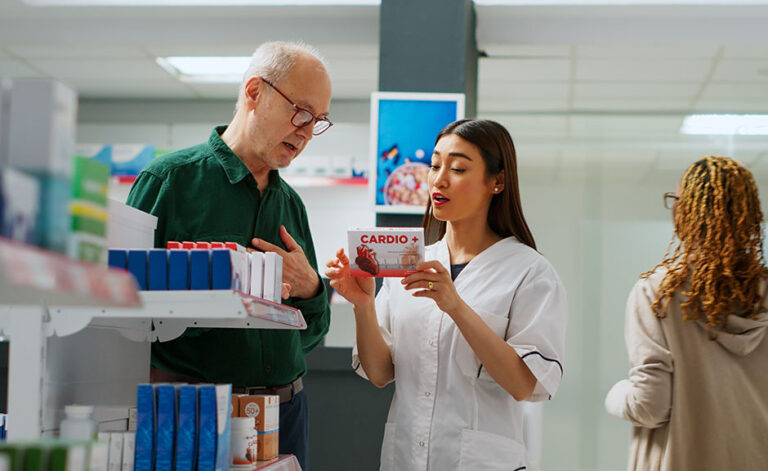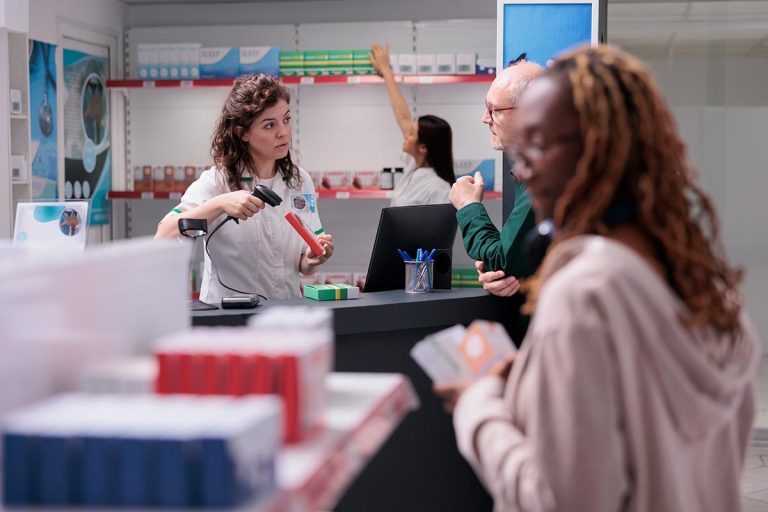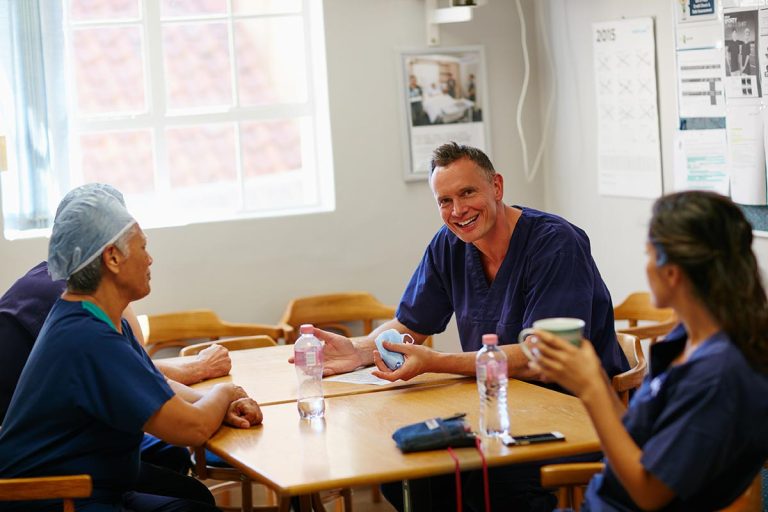Support and growth for clinicians
We understand the importance of providing a safe and supportive environment for professional development, which is why our clinicians receive support, training, professional development, supervision, and appraisals to expand their scope of practice. Additionally, we offer the option to discuss queries without interrupting workflow, ensuring that our clinicians are always empowered to deliver the highest level of care.
Accreditations and Partners



We offer bespoke tailored services that are designed to meet the unique needs of each practice.
What we offer
- Complete recruitment and supervision packages
- Working to CQC requirements for pharmacy professionals
- Tailored training and development plans
Full support from senior experts
Clinical Supervision & Training at National Clinical Services (NCS)

Background
Service Provider: National Clinical Services (NCS)
Objective: Provide clinical supervision, mentorship, and professional development for clinicians to enhance their practice and support high-quality care.

Approach
NCS prioritises creating a supportive environment for continuous learning and growth, ensuring that clinicians receive the supervision and mentorship necessary for their professional development. This is achieved through structured training, direct supervision, and access to resources.
Key Support Areas:
- Direct Clinical Supervision:
- Clinical leads are supervised by experienced senior clinicians who provide ongoing feedback and guidance on case management.
- Supervision sessions are scheduled regularly to review clinical performance, discuss challenging cases, and develop tailored learning plans.
- Mentorship & Tutoring:
- Each clinician is paired with a dedicated mentor, offering one-on-one support to expand clinical skills and improve decision-making.
- Mentorship focuses on personal development goals, enhancing clinical knowledge, and addressing any knowledge gaps.
- Training & Professional Development:
- Clinicians have access to structured training programs, focusing on expanding their scope of practice in areas such as advanced prescribing, chronic disease management, and patient safety.
- Regular workshops and CPD (Continuing Professional Development) sessions are held to keep clinicians updated on the latest clinical guidelines.
- Query Resolution Without Interrupting Workflow:
- Clinicians can discuss clinical queries or concerns with their mentors and supervisors during designated discussion times, ensuring continuous learning without affecting patient care.
- A supportive “open door” policy allows clinicians to seek advice when needed, ensuring that complex cases are handled appropriately.
- Appraisals & Feedback:
- Annual appraisals are conducted to assess clinical performance, set professional goals, and ensure that each clinician is on track with their career development.
- Constructive feedback is provided in a supportive environment, allowing clinicians to reflect on their practice and identify areas for improvement.

Results
- Improved Clinical Practice: Clinicians report enhanced confidence in their clinical decision-making and patient care, resulting from regular supervision and mentorship.
- Expanded Scope of Practice: Clinicians are empowered to expand their expertise, take on more complex cases, and deliver higher standards of care.
- Ongoing Professional Growth: Through targeted training and development, clinicians stay at the forefront of their fields, continuously improving their skills and knowledge.

Conclusion
National Clinical Services ensures that its clinicians receive comprehensive supervision, mentorship, and training, fostering a culture of professional development. This approach equips clinicians to deliver high-quality care while supporting their continuous growth in the clinical field.
-
ICBs
-
PCNs
-
Pharmacists
Don’t just take our word for it…
“As Practice Manager, I want to express my gratitude to Yasin Patel for his invaluable support in establishing our remote Minor Illnesses Clinic. His professional service has been instrumental in addressing staffing challenges and providing additional coverage when needed. The clinically proven approach has significantly alleviated pressures on our team. Thank you, Yasin!”
Kerry - Practice Manager
Frequently asked questions
How much ARRS funding can a PCN benefit from?
A PCN is allocated a sum for an entire year based on its weighted population share of the total ARRS funding.
Although PCNs are able to claim up to this maximum sum each year, an underspend has commonly been reported.
From 1 October 2024, PCNs will be able to claim up to £65,838 (annual equivalent) per ARRS clinical pharmacist working at band 7-8a.
In outer London, this rises to £73,189, and £76,313 in inner London.
How much is the ARRS funding?
Funding for the new ARRS GP roles has been calculated at £1.303 multiplied by the PCN’s weighted population as of the start of 2024.
According to NHS England, the overall value of the ARRS in 2023/24 is in excess of £1billion.
The role of ARRS in primary care
According to NHS England, The ARRS scheme was introduced as a key part of the government’s manifesto commitment to improve access to general practice.
Through the scheme, primary care networks (PCNs) can claim reimbursement for the salaries (and some on costs) of 18 new roles within the multidisciplinary team selected to meet the needs of the local population.
By expanding general practice capacity, the scheme improves patient access, supports the delivery of new services, and widens the range of primary care services available.
How many ARRS roles are available?
There are around 18 roles available, including:
- Clinical Pharmacist
- Pharmacy Technician
- Health and Well-being Coach
- Dietician
- Podiatrist
- Paramedic
- Adult Mental Health Practitioner
- Children and Young People’s Mental Health Practitioner
- Nursing Associate
- Trainee Nursing Associate
- Occupational Therapist
- First-contact Physiotherapist
- Care Co-ordinator
- Physician Associate
- Social Prescribing Link Worker
- General Practice Assistant
- Digital and Transformation Lead
- Advanced Practitioner
What does the ARRS stand for in the NCS?
ARRS stands for The Additional Roles Reimbursement Scheme.
In August 2024, the government announced that £82 million of additional funding from the Department of Health and Social care budget would be used to enable changes to the ARRS scheme, which means that in 2024/25 it can be used to recruit newly qualified GPs into the NHS and practices will be reimbursed for their salary costs. However, this changes the nature of the scheme as it had been focused on ‘additional roles’ that broaden the skill mix and range of services available to patients in general practice rather than funding core GP roles.
Who are National Clinical Services and how can we help assist PCN’s with ARRS?
How does the application process for ARRS funding work?
Who is eligible for ARRS funding?
What is a PCN?
PCN stands for Primary Care Network.
A Primary Care Network (PCN) is a group of GP practices that collaborate closely with other health and social care staff and organisations to deliver integrated services to their local community.
This model enhances the ability to provide comprehensive, coordinated care tailored to the specific needs of the population they serve.
Across England, there are around 1,250 PCNs covering populations of, on average, 50,000 people – although this varies significantly, with more than a third of PCNs covering more than 50,000 people. In some cases, a single practice that has met the size requirements of a network can also function as a network.
Get in Touch
Choose a time that works best for you. Once you are done setting up a time, please check your email for your confirmation.
